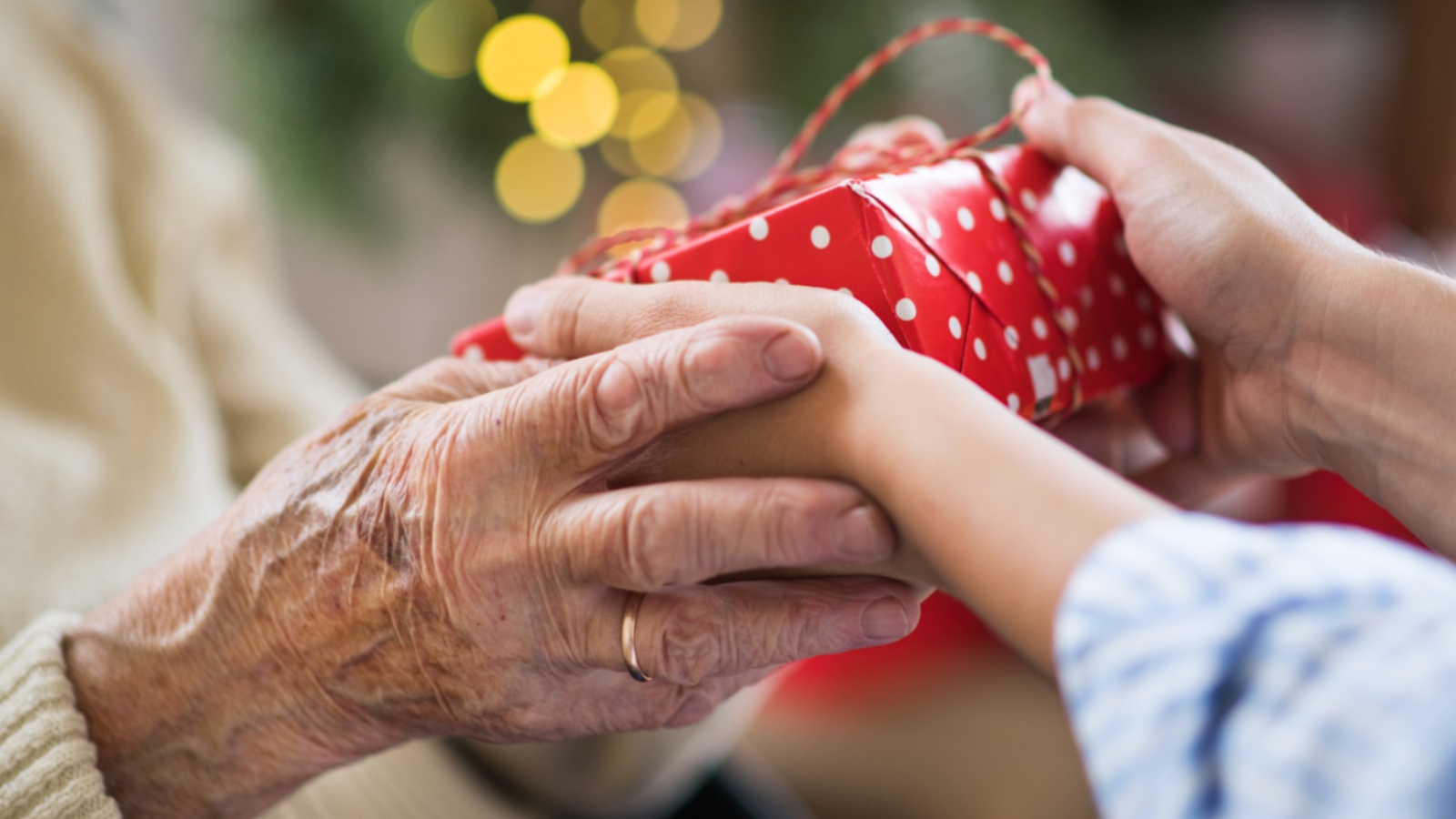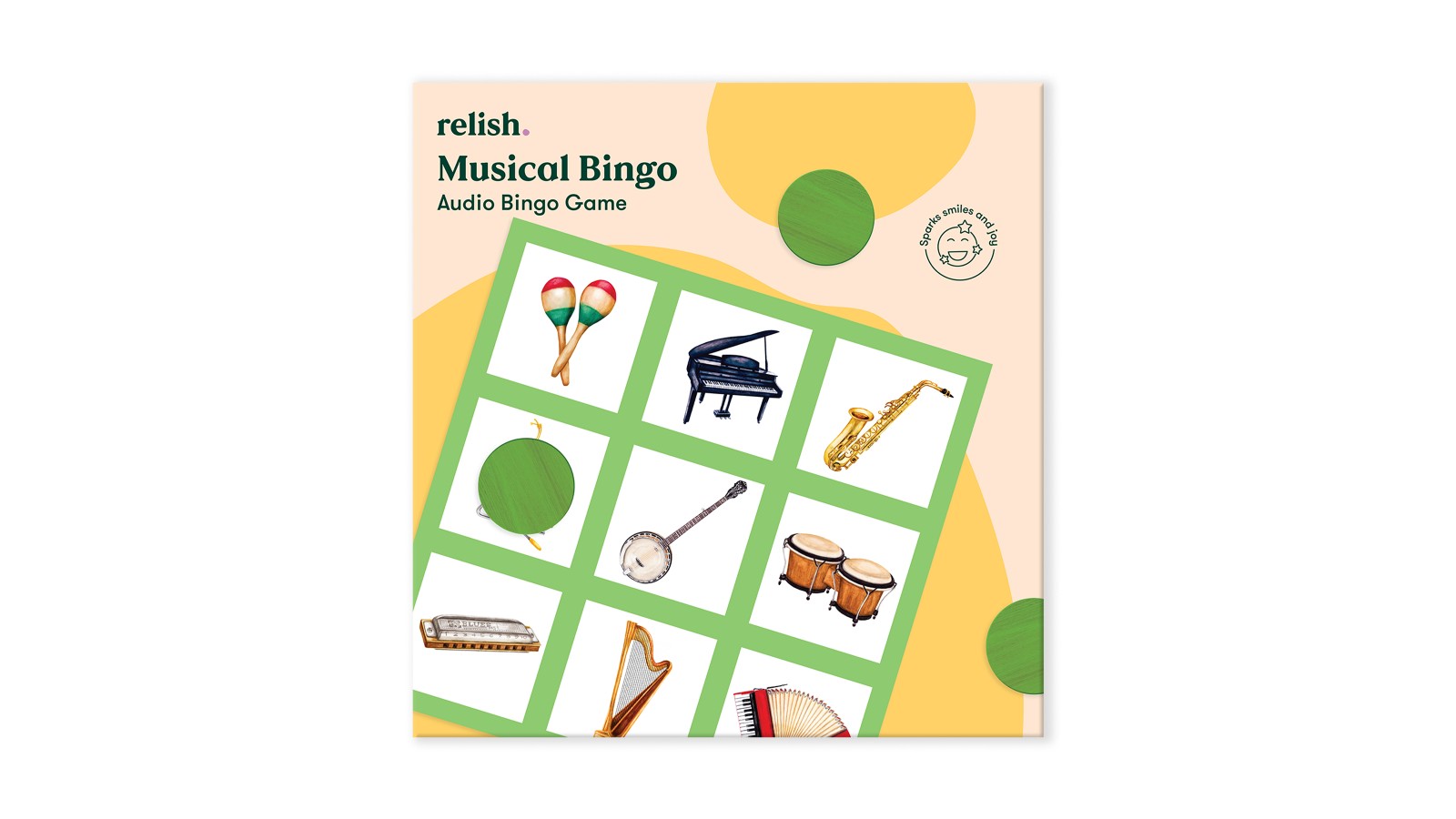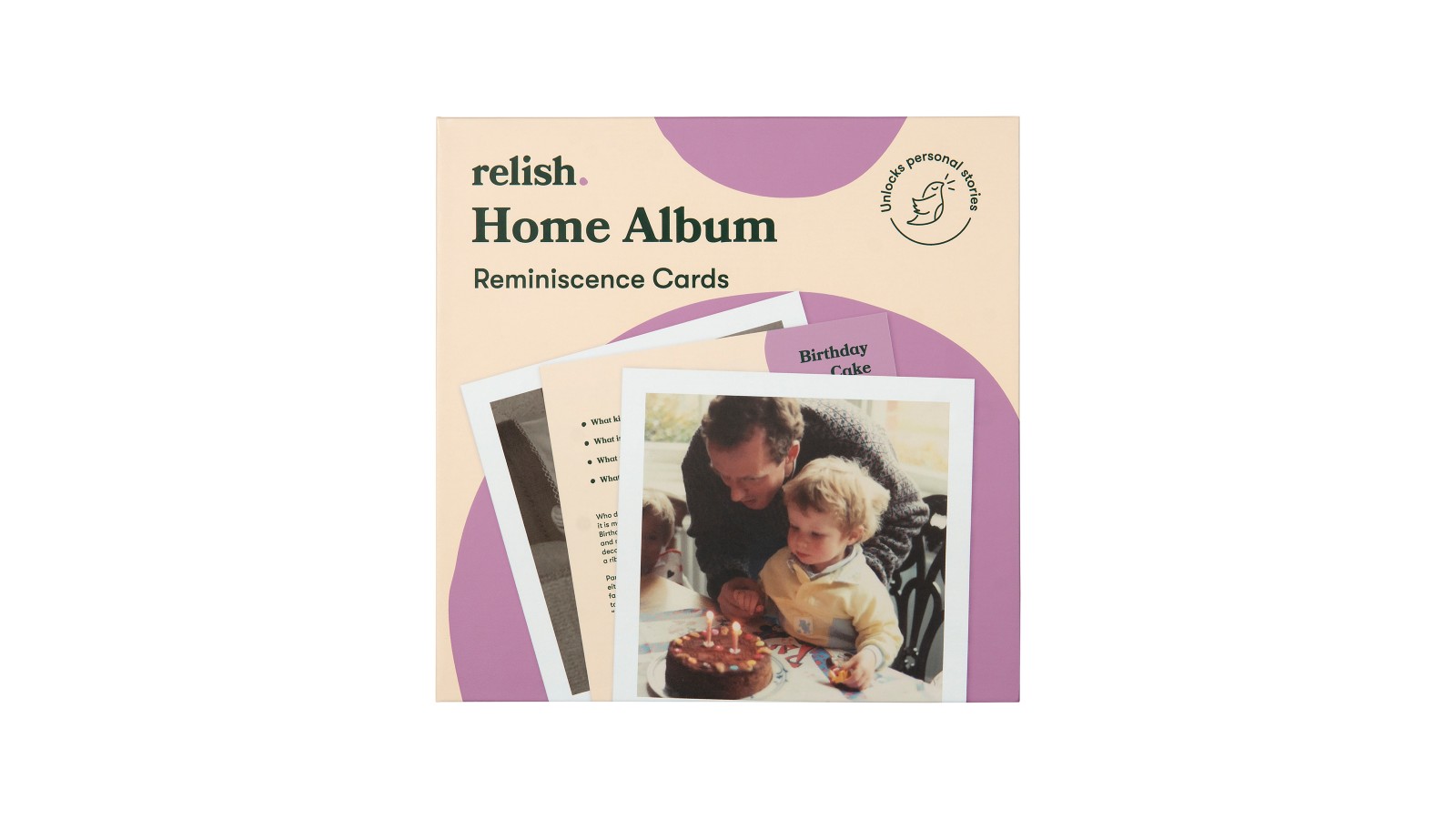Dementia at Christmas time: practical advice to help you support loved ones
Dealing with dementia at Christmas can be tough, especially if you can't see your loved ones due to restrictions. Our expert advice will help you adjust to the changes.

Are you dealing with dementia at Christmas? Dementia is a difficult disease to deal with at any time of year, but the festive season can often present some particularly tough challenges – for patients and carers alike. And this year things will be even worse, with new Tier restrictions meaning it may be impossible to see loved ones with dementia if they live far away or in a care home.
“The restrictions put in place as a result of Covid-19 can have many negative impacts for people living with dementia and their families," says Dr Simon Evans, principal research fellow for the Association for Dementia Studies at the University of Worcester. "This includes isolation, disrupted routines and a lack of cognitive stimulation."
Of course, Christmas can be a tricky period even for those of us who don't face these kinds of health issues. But for those with dementia, it can often be even more confusing.
Here's everything you need to know about dealing with dementia at Christmas...
Dementia at Christmas: why this time of year is so hard
Christmas is a tricky time of year for everyone, but it's even harder for those with dementia due to a change in routine.
"Christmas leads to a change in their routines, and routine can be really important for people with dementia," says Gemma Jolly, from the Alzheimer's Society. "It’s also very busy, with lots going on, which can be overwhelming and disorientating."
And that's not all. "A person with dementia may not understand why things change at Christmas time, or may not remember that it’s normal for things to change (e.g. shop opening times, layouts of shops, house decorations)," says Gemma.
Sign up to our free daily email for the latest royal and entertainment news, interesting opinion, expert advice on styling and beauty trends, and no-nonsense guides to the health and wellness questions you want answered.
Plus, it can be a time filled with the weight of expectations, of fun experiences and special moments. "But it can be hard for someone with dementia to meet these expectations – which can be difficult for people to understand," says Gemma.
"Those supporting them may not understand that Christmas can be challenging, or that the person finds things more difficult as a result of their dementia, so they expect them to act as they would have done previously which may not be possible."
READ MORE:
- Volunteering at Christmas: How you can help
- Dealing with grief during the festive season
- GPs to prescribe this activity to people suffering with loneliness
Why dementia at Christmas is also tough on carers
And it's not just those with dementia who experience extra stress at Christmas. It's hard for those caring for them, too.
"Alongside the bewilderment at all the changes Christmas brings, there's also the sense of isolation that can be pervasive at this time of year - not only people with dementia, but for their careers too," says Gemma. "For carers, they often have the stress of Christmas generally, and then a sense of responsibility for the person with dementia and trying to keep them involved, safe and happy – this can be difficult."
Some people may struggle to cope and feel alone. "Changes to the person’s routines may mean they start to behave differently and this can be hard for carers to manage," says Gemma. "It can also be exhausting and isolating (as caring is in general)."
Support loved ones with dementia at Christmas by being flexible with plans
It might be tricky to face that things might not be able to run like clockwork if a loved one is living with dementia.
Dementia can be unpredictable, and releasing the pressure to stick to firm demands on your time and rigid schedules can help everyone to feel a bit more relaxed.
"It’s about being prepared to be flexible and adaptable, not so much that the person may be upset (although they may) but the festivities will work best if they meet the needs and abilities of the person with dementia," says Gemma. "If you try to force them to follow a pre-set plan and it’s not working it may be distressing and upsetting for everyone."
The best schedule for someone with dementia at Christmas
Some simple ways to keep everything relaxed could be as easy as ensuring the day takes place in the person with dementia's home environment. "While it can seem like a good idea to have the person over for Christmas, it can be really disorientating and confusing for them, and they may struggle to adapt to the new environment," says Gemma. "It may be better for the family to go to the person’s (although this will depend on the person)".
However, this will also depend on Covid regulations this year. Things may change last minute, so try to stay flexible and not plan too far in advance.
"It can also be helpful to work to their schedule - but accept that if things change, it's not the end of the world," says Gemma. For example, you were planning the big Christmas meal in the evening, but the person with dementia usually eats their biggest meal at midday, it could be helpful to adapt to their timings. Equally, if they don't want to eat much at midday either, don't make a big deal out of it.
Why you should put decorations up slowly
Dealing with dementia at Christmas may mean you can't do things in the same way you always have.
Big changes at Christmas, particularly to the home, can be potentially troubling for a dementia patient. Which is why the Alzheimer's Society recommend decorating your home a bit at a time, rather than all in one evening – something which will change the appearance of your home fairly drastically.
"Changes to the environment can be overwhelming, so if you put all the decorations up at once it can be too much for some people with dementia," says Gemma. "Putting them up gradually gives the person time to get used to them."
However, it's key to take into account the person with dementia - on the other hand, Christmas decorations may be a reassuring, fun way of interacting with family and the festive season. Take your lead from them, and act accordingly.
READ MORE:
- 11 tips for better conversations when caring for someone with dementia
- How to communicate with someone who has dementia
- The new dementia tracking device
Sharing older memories can help to deal with dementia at Christmas
Often, for those with dementia, older memories are much clearer and easily retrievable than more recent memories.
And sharing those old memories can be overwhelmingly positive for people with dementia, igniting meaningful engagement with loved ones and boosting their wellbeing in general.
Bring out an old family photo album of a past Christmas, or play an old song/album/film they used to love. Entertainment like this can be particularly positive, sparking a feeling of joy within them without the need for explanation.
"It’s about using knowledge of the person to engage with them and use things they enjoy or have meaning for them," says a spokesperson for the Alzheimer's Society.
"Reminiscence can improve quality of life, communication, cognition and mood in some people with dementia. However, it needs to be tailored to the individual and based on what they like/enjoy."
But be mindful of the fact that "some memories may be distressing" for your loved one with dementia. "Everyone with dementia is different, and it's important to be mindful that certain things or people may trigger negative emotions," adds Gemma.
Create a quiet room this Christmas
Christmas, with the songs, food, TV, people and presents, can be a lot to handle, at the best of times. As such, it can be especially tough for people with dementia.
The Alzheimer's Society recommends creating a 'quiet room', which can be really helpful – a place where they can retreat to if things get too much. Allow them to decide when they might like to go there, or when they might like to join in again – let it be a safe haven for them.
How to connect with someone with dementia from a distance
Can't see your loved one with dementia this Christmas? You're not alone. A survey by Relish found that 29% of Brits have a close friend with dementia, which means you're not likely to be living in the same house. But you can still make a connection at Christmas time.
“Even if you can’t see your loved one with dementia face to face, the natural human connection that is so important to happiness is still possible," says Samantha Leech, a Relish employee who has 20 years’ experience as a dementia care professional. "Give daily moments of joy through phone calls and sending letters and postcards – even better, send photos with little stories and your favourite memories.”
Gifts ideas for those with dementia at Christmas time

RRP £24.98
Music can be really beneficial to those with dementia. This game is ideal for groups of up to eight players. All you have to do is simply listen to the recognisable pieces of music and match up with the instruments on your card.
"Listening to music can be powerful for people living with dementia to reduce anxiety by helping to reminisce and meditate," says Samantha.

RRP £11.99
Reminiscence Cards can help tell the stories of your life in a relaxed and natural way. These can help bring comfort and calm, plus strengthen connections.
Where to find help
- Alzheimer’s Society’s Dementia Helpline and Dementia Talking Point
This online community is there to help at what can often be a difficult and lonely time for people affected by dementia. - Dementia UK Feeling isolated as a carer? Call the free helpline on 0800 888 6678.
- Age UK Discover specialist support groups and day centres near you.
Merry Christmas - and always remember it's just one day of the year.
Faye M Smith is an award-winning journalist with over 20 years experience in the magazine industry. Her continued work in the area of natural health won her the coveted title of the Health Food Manufacturers’ Association (HFMA) Journalist of the Year Award 2021. Currently Group Health Director across several magazines including woman&home, Woman, and Woman’s Own, Faye specialises in writing about women’s health, especially menopause, relationships and mental health.


